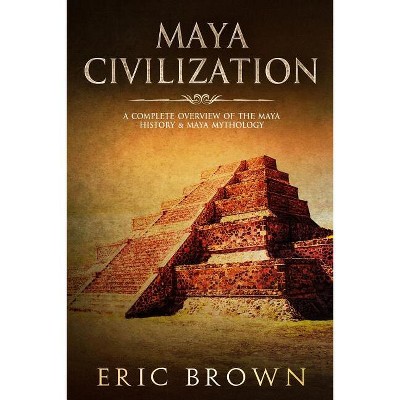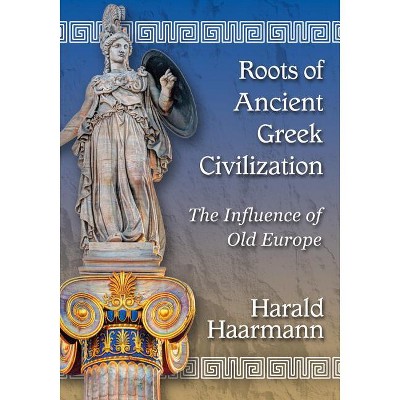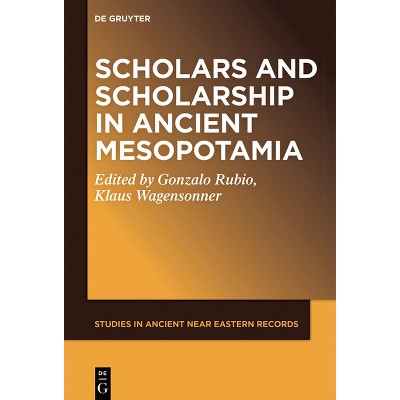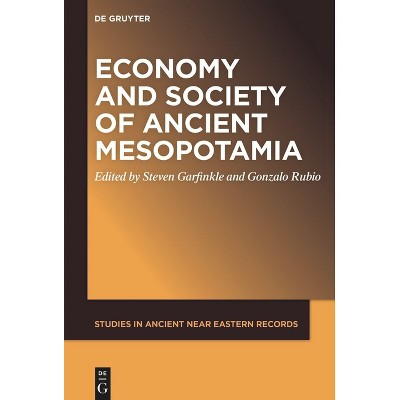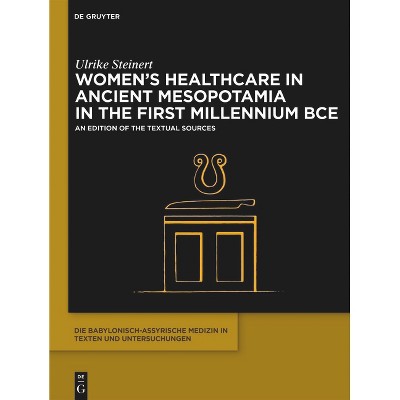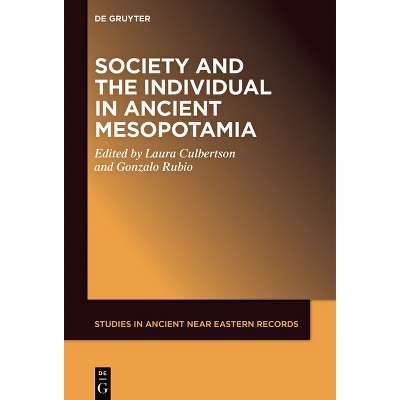Sponsored

Ancient Mesopotamia at the Dawn of Civilization - by Guillermo Algaze (Paperback)
In Stock
Sponsored
About this item
Highlights
- The alluvial lowlands of the Tigris and Euphrates rivers in southern Mesopotamia are widely known as the "cradle of civilization," owing to the scale of the processes of urbanization that took place in the area by the second half of the fourth millennium BCE.
- About the Author: Guilllermo Algaze is professor of anthropology at the University of California, San Diego, and the author of The Uruk World System: The Dynamics of Expansion of Early Mesopotamian Civilization, now in its second edition from the University of Chicago Press.
- 248 Pages
- Social Science, Archaeology
Description
About the Book
Algaze s first book, "The Uruk World System"(Chicago 1993, 2nd ed. 2005), is the story of how an urban based power expanded outward to become the largest empire in the early civilized world for almost a thousand years beginning around 4000 BC. There Algaze focuses on the dynamics of this expansion and shows how Uruk s increasing economic dependence on the periphery of the empire for essential materials and as a source of cheap labor ultimately led to the whole empire s demise, though its influence lived on in northern European kingdoms. Here, in"Ancient Mesopotamia at the Dawn of Civilization," Algaze focuses instead on the dynamics within the city of Uruk itself during the same time period. Combining original archaeological research on the history of ancient rivers east of the Euphrates with sophisticated political economic theory, Algaze argues that cities and states arose in southern Mesopotamia earlier than anywhere else because the rivers there enabled a greater degree of trade which in turn led to important innovations in organizing labor as well as information processing. While not downplaying the role of individual actors in this drama, Algaze emphasizes the centrality of geography in the earliest known development of urban civilization."Book Synopsis
The alluvial lowlands of the Tigris and Euphrates rivers in southern Mesopotamia are widely known as the "cradle of civilization," owing to the scale of the processes of urbanization that took place in the area by the second half of the fourth millennium BCE.In Ancient Mesopotamia at the Dawn of Civilization, Guillermo Algaze draws on the work of modern economic geographers to explore how the unique river-based ecology and geography of the Tigris-Euphrates alluvium affected the development of urban civilization in southern Mesopotamia. He argues that these natural conditions granted southern polities significant competitive advantages over their landlocked rivals elsewhere in Southwest Asia, most importantly the ability to easily transport commodities. In due course, this resulted in increased trade and economic activity and higher population densities in the south than were possible elsewhere. As southern polities grew in scale and complexity throughout the fourth millennium, revolutionary new forms of labor organization and record keeping were created, and it is these socially created innovations, Algaze argues, that ultimately account for why fully developed city-states emerged earlier in southern Mesopotamia than elsewhere in Southwest Asia or the world.
Review Quotes
"Outstanding. . . . This book is the single best treatment available in discussing the complex issues involved in bringing about Mesopotamian civilization, offering a model of approach for anyone interested in the emergence of civilization."-- "Choice"
"Algaze displays an impressive command of recent research in economic geography and an insightful knowledge of strengths and weaknesses of the textual and archaeological dataset. The result is a tight and theoretically explicit model for the precocious rise of southern Mesopotamian urban society that argues strongly for the primacy of trade, transportation technology, and uniquely diverse geographic circumstances. Algaze's The Uruk World System drove the research agenda for the Uruk expansion; Ancient Mesopotamia at the Dawn of Civilization will structure the direction of future field research on the emergence of the world's earliest urban states."
--Jason Ur, Harvard University"This is an important and valuable distillation of Algaze's most recent thinking on the development of southern Mesopotamian society. While it is indeed a worthy complement to his earlier work, this wholly original book takes his argument much further, making a number of important theoretical points."
--T.J. Wilkinson, Durham UniversityAbout the Author
Guilllermo Algaze is professor of anthropology at the University of California, San Diego, and the author of The Uruk World System: The Dynamics of Expansion of Early Mesopotamian Civilization, now in its second edition from the University of Chicago Press.





